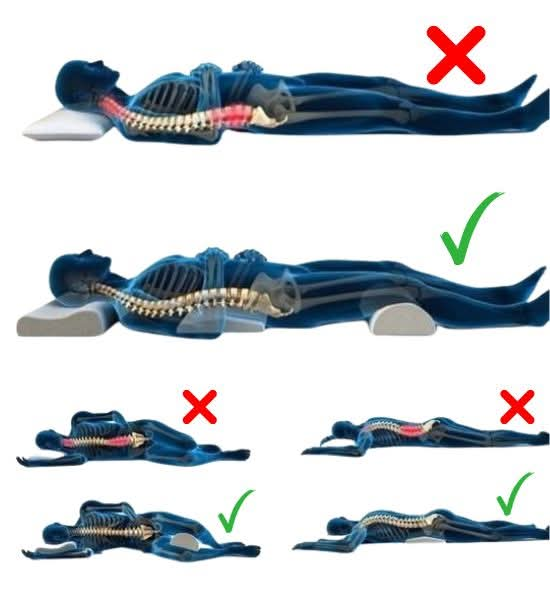Why Your Sleeping Posture Affects Your Health More Than You Think! It’s not just about comfort—how you sleep could be changing your life.

We often focus on diet, exercise, and stress management for better health, but there’s a hidden player that many overlook: your sleeping posture. Yes, the way you position your body during those 6–8 hours of rest can have a serious impact on your physical and mental health.
Let’s break it down.
1. Back Sleeping (Face-Up)
Pros:
- Supports spine alignment
- Reduces acid reflux
- Minimizes wrinkles
Cons:
- Can worsen snoring and sleep apnea
- Not ideal during pregnancy
Tip: Place a pillow under your knees to maintain the spine’s natural curve.
2. Side Sleeping
Pros:
- Great for digestion
- Reduces heartburn
- Helps with snoring
Cons:
- Can cause wrinkles and breast sagging
- May lead to shoulder pain
Best side: The left side is better for digestion and lymphatic drainage.
3. Fetal Position
Pros:
- Good for lower back pain
- Excellent for pregnancy
Cons:
- Too tight a curl can restrict breathing
- May cause stiffness
Tip: Keep your body relaxed and avoid tucking in too tight.
4. Stomach Sleeping
Pros:
- Reduces snoring
Cons:
- Strains the neck and spine
- Can lead to back pain
Tip: If you must sleep this way, use a very thin pillow or none at all.
Why It Matters
Poor posture during sleep can lead to:
- Chronic neck or back pain
- Nerve compression
- Poor circulation
- Interrupted breathing
- Tension headaches
Over time, these small nightly habits accumulate and can affect energy levels, mood, and even digestion.
FAQs
Q: How can I train myself to sleep in a better position?
Start by using pillows for support—behind your back, between your knees, or under your knees depending on the goal.
Q: Is it okay to switch positions during sleep?
Yes! It’s natural to move, but try to fall asleep in a healthy posture.
Q: Can sleeping posture affect mental health?
Yes. Poor sleep due to discomfort or apnea can increase anxiety and depression.
Your bed isn’t just a place for rest—it’s where your body resets. Choose your posture wisely, and your body will thank you every morning.






